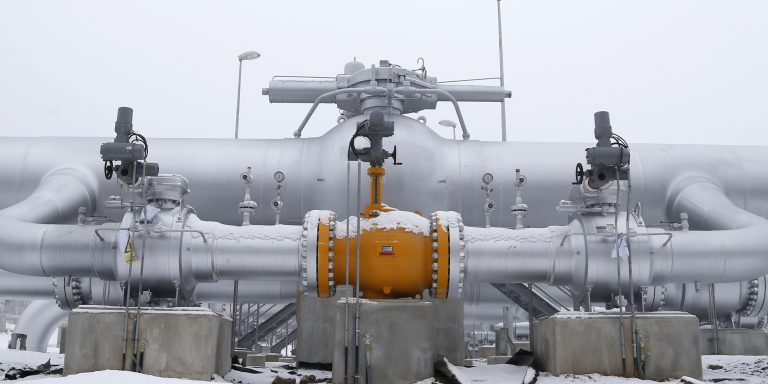INTELBRIEF
March 26, 2019
IntelBrief: Using Russia’s Energy Supplies as Geopolitical Leverage

- The U.S. is reportedly close to imposing sanctions on the Nord Stream 2 natural gas pipeline project, a massive Russian-German joint endeavor.
- Germany, the world’s largest natural gas importer, already gets at least 40% of its gas from Russia.
- The Nord Stream 2 is a source of contention not just between Germany and the U.S. but also other E.U. members who are concerned about an overreliance of a member state on Russia.
- U.S. sanctions against the Russian-German pipeline would not derail the project but would lead to increased tensions between Washington and Berlin.
.
Outside of arms sales, Russia’s most powerful economic and geopolitical tool is its ability to export natural gas—leverage that Moscow uses to its advantage. While sanctions remain on Moscow for its illegal annexation of Crimea in 2014, the Kremlin has managed to increase its exports of natural gas to Berlin, one of its staunchest critics. Germany already receives at least 40% of its natural gas imports from Russia, with other estimates approaching 50% or higher. Germany is the world’s largest importer of natural gas, having decided to move away from both coal and nuclear power. Since 2005, Germany has been in a partnership with Russian multinational corporations and Russian state-controlled Gazprom working to build the Nord Stream 2 pipeline. From the beginning of the project, the U.S. and even other E.U. member states have expressed growing concern over the shared venture. Nord Stream 2 is set to run 746 miles from near Saint Petersburg, Russia, to the northeastern coast of Germany.
Some of the concern is related to simple economics. The U.S. wants to increase its natural gas exports to Europe, though given the transport costs, American gas is more expensive and therefore less attractive than Russian gas. The Obama administration tried to convince the Merkel government to give up the project to no avail. The Trump administration has also attempted serious diplomatic arm twisting, also to no avail. Washington argues the irrationality of imposing sanctions on Moscow only to greatly enrich Russia through gas sales. Countries like Ukraine fear the loss of gas transit fees for shipments in pipelines over their territory, as Nord Stream 2 bypasses those fees as it runs underneath the Baltic Sea. Kiev also worries that Russia will more frequently turn off the gas to Ukraine if the new Nord Stream 2 pipeline keeps gas flowing downward to Europe. Poland objects to the project because it increases Russian leverage over the E.U. at a time when in all matters not energy related, the E.U. is at serious odds with Moscow. The E.U. government refuses to endorse the project.
There are credible non-economic concerns as well. Russia has already demonstrated it will use its ‘power of the pump’ to curtail or shut off supplies completely. Gazprom has stopped supplies of gas to Ukraine over allegations of overdue payments, and this, in turn, negatively affects European countries ‘downstream’ that use the same pipeline. Moscow has demonstrated it will withstand financial hardship for geopolitical gain—for example, its continued de-facto invasion of eastern Ukraine. Accordingly, it is not entirely out of the question for the Kremlin to use natural gas as an effective weapon against the E.U. The U.S. has repeatedly stressed this point in its ongoing discussions with Germany, but the project continues.
If the U.S. enacts sanctions sanctions on Western companies working with Russia on Nord Stream 2, it will create even more tension between Washington and Berlin at a time of already strained relations. Sanctions could cause Russia to assert even more control over the project, buying out any private sector firms that might suffer from sanctions. This would slow down the project, but it would not stop it completely. Some in Berlin believe that the U.S. is upset over being squeezed out of a larger profit share from natural gas exports. Policymakers in Washington, however, are genuinely concerned about Russia using its energy supplies to drive a wedge between the U.S. and some of its closest European and NATO allies. The Kremlin is savvy enough to recognize when it has leverage and will continue to play both sides of the issue, increasing gas sales to Germany in particular and Europe more broadly, in essence holding the E.U. hostage with threats of withholding energy supplies if geopolitical tensions continue to increase.
.
For tailored research and analysis, please contact: info@thesoufancenter.org